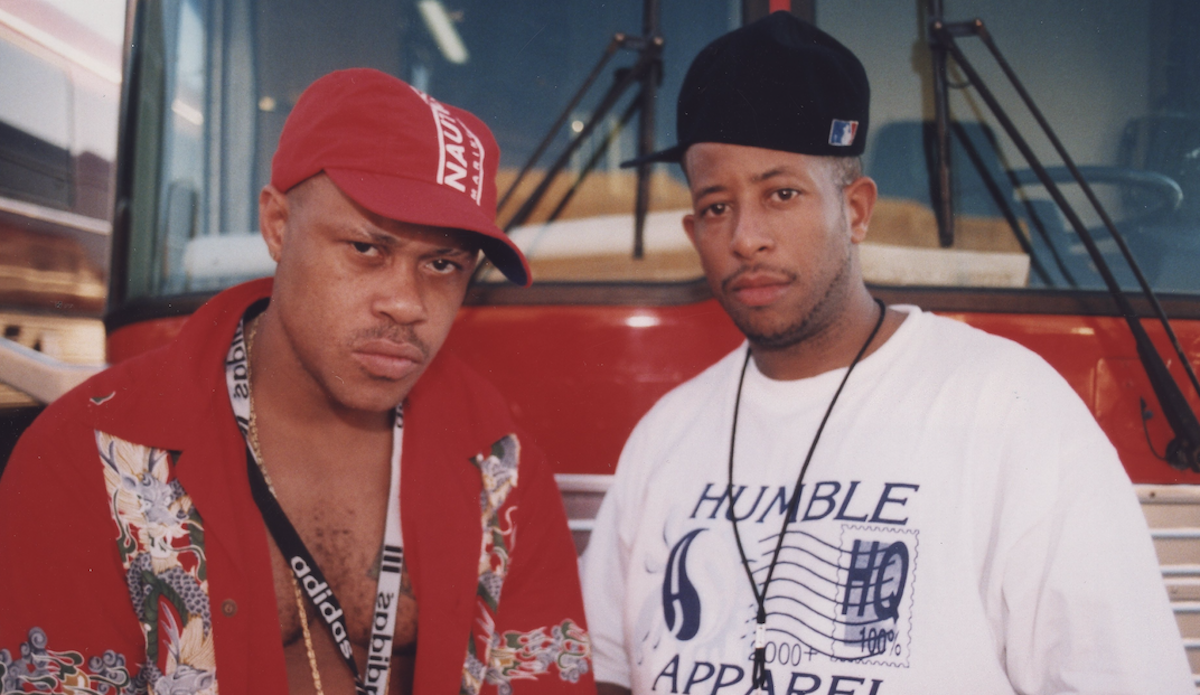
The Best & Worst Posthumous Rap Albums Of All Time
Last week (April 26), during a concert at Los Angeles, California’s El Rey Theater, Tyler, The Creator told his hometown crowd about a very significant provision in his will. “Some of these [songs] are so good I can’t just let ’em sit on my hard drive,” Tyler told the crowd moments before performing a previously unreleased track, “Pennies.” “Because I have in my will that if I die, they can’t put no f*cking post[humous] album out. That’s f*cking gross, [they’ll get] like some random feature on it, some ni**a I didn’t f*ck with.”
Tyler, The Creator speaks on posthumous releases at last nights show.pic.twitter.com/fefTUWHS3K
— Odd Future (@OddFuturePage) April 27, 2023
Two years ago, after DMX passed away, Swizz Beatz made a similar pledge involving DMX’s catalog. Since then, the Ruff Ryders super-producer has seemingly held his word since Exodus. This happened even as another X hitmaker, Dame Grease, announced wishes to drop 50 Earl Simmons songs.
Swizz Beatz Explains Why He Will Not Release His Vault Of DMX Music
Tyler and Swizz’s points follow a trend in all of music, but one that has been dominant in Hip-Hop for over 25 years. Late legends including Tupac Shakur, Biggie Smalls, Big Pun, Ol’ Dirty Bastard, Pimp C, XXXTentacion, Lisa “Left-Eye” Lopes, Eazy-E, Big L, Pop Smoke, Sean Price, Chinx, and others have seen their catalogs shared with fans years after their deaths. In some cases, this music is remixed, edited, and strategically manipulated for the interests of record labels, families, and more. These releases can add to legacy, and keep an artist’s name and brand buzzing. Other times, this music can feel cheap and manipulative to the public, as well as that same legacy.
On the newest episode of What’s The Headline (embedded above), Ambrosia For Heads‘ team discusses posthumous albums, and Tyler’s point. Since the 1990s, there have been albums that package unreleased material from late artists. AFH examines the pro’s and con’s of sharing this music. There is also discussion of some of the best examples of posthumous albums done right. This includes Gang Starr’s 2019 One Of The Best Yet, Mac Miller’s Swimming, Sean Price’s Imperius Rex, and Phife Dawg’s Forever. However, with the good, comes an open discussion about some releases that have not been so good. Specific releases by The Notorious B.I.G., O.D.B., Lisa “Left-Eye” Lopes, and Tupac are named for some transgressions involving legacy.
Sean Price & Prodigy’s Posthumously Released Collabo Gets An Animated Send-Off (Video)
The conversation includes discourse surrounding the definitions of posthumous albums. Makaveli’s Don Killuminati: The 7 Day Theory, Biggie’s Life After Death, X’s Exodus, Big L’s The Big Picture, and J Dilla’s The Shining—while released shortly after their creator’s deaths—adhere to the vision of the artists. Those are different to releases that leave work to do for estates, producers, and labels.
AFH readers can catch regular discussions about the culture on our What’s The Headline. The podcast also features interviews with Royce 5’9, Guy Wood, Sr. and Sharene Wood, Rapper Big Pooh, Cormega, Meyhem Lauren & Daringer, Diamond D, AZ, Blu & Mickey Factz, Joell Ortiz, Kurupt, Evidence, Skyzoo, Pharoahe Monch, Prince Paul & Don Newkirk, Statik Selektah, Lyric Jones, The LOX, MC Eiht, Havoc, Duckwrth, photographer T. Eric Monroe, and Lord Finesse.
On Big L’s 43rd Birthday, This Freestyle Shows Why His Rhymes Are Immortal (Video)
#BonusBeat: Posthumous music from Mac Miller is presently included on the AFH playlist: